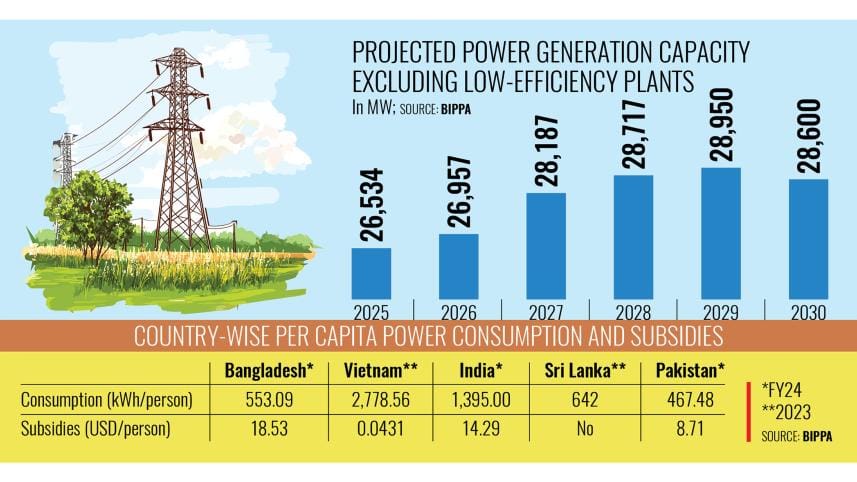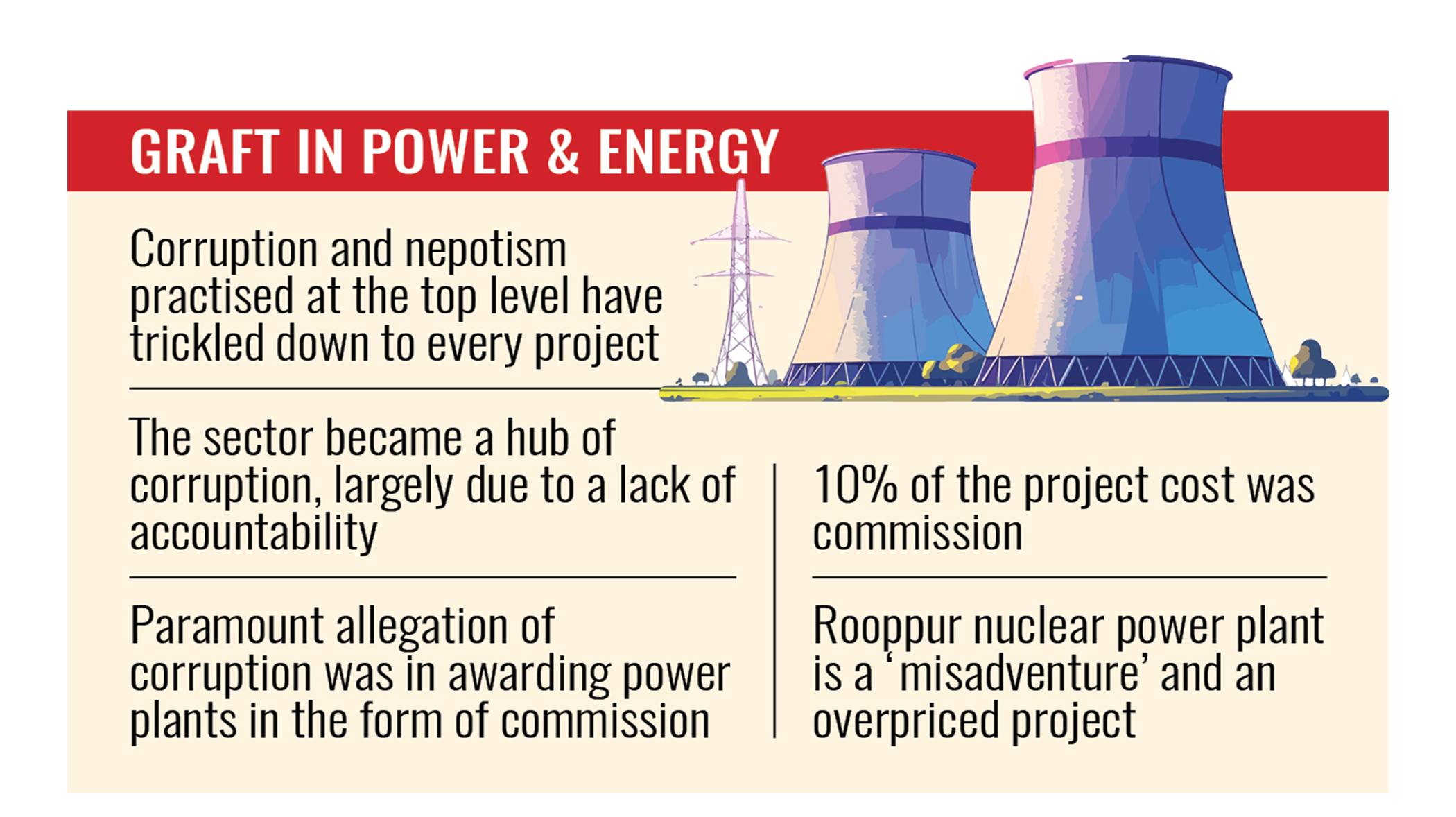Bangladesh’s power subsidies highest among neighbours despite low use

Bangladesh has the highest per capita power subsidies among its four neighbouring countries, including India and Pakistan, despite having the second-lowest per capita consumption, according to an analysis by the Bangladesh Independent Power Producers Association (BIPPA).
BIPPA presented its findings to senior government officials yesterday at Rail Bhaban, near the Bangladesh Secretariat.
The presentation showed that Bangladesh paid $18.53 in per capita power subsidies in fiscal year 2023-24, which is higher than India's $14.29, Pakistan's $8.74, and Vietnam's $0.0431.
Island nation Sri Lanka discontinued such subsidies in 2023.
Besides, electricity prices at the retail level in Bangladesh are the lowest among these countries, even though the country relies on the highest percentage of imported fuel for electricity generation, the BIPPA found.
According to their analysis, Bangladesh imports 65 percent of its total fuel needs, followed by Sri Lanka, Vietnam, Pakistan, and India, respectively.
According to the BIPPA analysis, per capita power consumption in Bangladesh is 553 kilowatt-hours (kWh), with only Pakistan consuming less.
Besides, BIPPA said that Bangladesh is the only country among its neighbours where domestic customers consume the highest proportion of electricity, around 56 percent.
Industries and commercial customers consume around 39 percent of the total power generated, which is also the second-lowest after Pakistan, according to the analysis.
According to economists and energy experts, higher power generation costs, rapid expansion of power infrastructure and excessive capacity charges have contributed to the subsidy burden.
More than one-third of the government's subsidy allocations in the current budget for fiscal year 2025 have been earmarked solely for the power sector.
The government allocated nearly Tk 40,000 crore in the current national budget to bridge the gap between the power purchase from power plants by the Bangladesh Power Development Board (PDB) and its sale to distributors.
Economist Prof A K Enamul Haque, deputy vice-chancellor at the UCSI University's Bangladesh campus, said the increase in power subsidies is due mainly to corruption.
He said that during the previous Awami League government, many agreements were signed without transparency.
Besides, the authorities used the indemnity act to deal with the power sector and awarded quick rental power plants with excessive capacity payments. This eventually increased power generation costs, he said.
Enamul, also a member of the White Paper Committee on the State of Bangladesh Economy, said the power sector was a major source of black money and the government made many wrong decisions, which altogether impacted the economy.
"The sector should be reviewed strategically on how to overcome this situation. We may not get out of some deals due to legal aspects, but we can make a long-term plan to reduce the inflated costs," he said.
Previously, Khondaker Golam Moazzem, research director at the Centre for Policy Dialogue (CPD), told The Daily Star that capacity payments and higher energy prices in the international market made it necessary to allocate higher subsidies for power in FY25.
Even with several hikes in power prices, said the government still needs to subsidise the sector for capacity payments to power plants currently under construction.
Moazzem added that the government could reduce the subsidy burden by retiring inefficient and old power plants and suspending capacity charges when plants are not generating electricity.
Electricity prices increased by 8.5 percent in February of last year and by 5 percent three times in 2023.
BIPPA, representing mostly owners of power plants run by furnace oil, made the presentation on the relevance of those plants.
The power producers said that summer power demand (March to September) may reach 18,232 megawatts (MW), with heavy fuel oil (HFO) based plants possibly required to generate up to 4,149 MW.
The association calculated that while gas-fired plants have a capacity of 10,667 MW, they may only generate up to 6,400 MW, and coal-based plants may generate up to 5,558 MW.
"Even under a conservative scenario where median peak demand is 16,000 MW, HFO-based power plants are relevant as they would be required to produce up to 2,878 MW and will continue to be so," said the analysis presented by Imran Karim, a former president of the organisation.
Currently, there are 5,525 MW of HFO-based power plants, a figure projected to decrease to 4,025 MW by 2030.
The presentation showed that independent power producers are facing payment delays of 120-180 days despite a 30-day payment term in their purchase agreements. These delays have forced companies to borrow additional working capital, incurring an extra Tk 3,200 crore in interest costs.
Moreover, foreign currency shortages have hindered companies' ability to open letters of credit (LCs) for fuel imports, forcing them to operate below capacity.
According to PDB officials, PDB has now been struggling to pay the overdue payments to the power plants.
The power plants have outstanding dues of around Tk 21,000 crore, with around Tk 9,000 crore under the BIPPA.
Adviser to the Ministry of Power, Energy and Mineral Resources Muhammad Fouzul Kabir Khan, Power Division Secretary Farzana Mamtaz, PDB Chairman Md Rezaul Karim, incumbent president of BIPPA David Hasanat and members joined the meeting.




 For all latest news, follow The Daily Star's Google News channel.
For all latest news, follow The Daily Star's Google News channel. 
Comments